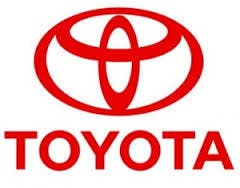If you’ve yet to invest in emerging energy technologies, recent actions by the world’s largest automaker in lithium-ion battery development could get you off the fence and into the game.

Count Tim Esterdahl among them. “The lithium-ion battery is lighter and smaller, which will help increase miles per gallon,” points out Esterdahl, in a recent guest blog for Olathe Toyota Parts Center, one of the Internet’s largest distributors of Toyota parts. Esterdahl agrees with other forecasters that Toyota is likely to replace the nickel-metal hydride battery currently used in its popular Prius with lithium-ion technology.
Esterdahl points to a report in Nikkei that Toyota Motor Corporation (NYSE:TM) and Panasonic will build a new production line at a cost of $194 million to manufacture lithium-ion batteries. The six-fold increase equates to about 200,000 units annually.
In making the announcement, Toyota Motor Corporation (NYSE:TM) spokesman Ryo Sakai told Reuters that the joint venture was in response to the growing demand for lithium-ion batteries.
While there has been some indication Toyota Prius sales have plateaued in the U.S., it remains a dominant force and is the top-selling hybrid vehicle worldwide, passing the 3-million mark in sales last month.
“The appeal of hybrids is easy to see with rising gas prices and the prices of hybrids dropping,” says Esterdahl. “A new and improved Prius will help Toyota Motor Corporation (NYSE:TM) continue its reign as the top hybrid manufacturer in the world.”
New market opportunities
The assumption that Toyota is ramping up production of lithium-ion batteries for use in its Prius may be made a bit fuzzy with Toyota’s announcement later the same month that it is also launching a joint venture with a local Chinese company to produce nickel-metal hydride batteries. But industry chatter is that the nickel-metal hydride batteries will be used not for its current Prius, but for hybrid models Toyota plans to start selling in China in 2015 as part of its effort to make advanced energy cars more affordable there.
The flurry of activity by Toyota Motor Corporation (NYSE:TM) and other automakers comes in anticipation of China’s automobile policy being tweaked to include conventional hybrids under its incentives for alternative energy car purchases. Currently, China provides generous subsidies for all-electric vehicles and plug-in hybrids, with only small incentives for conventional hybrid ownership. But that’s expected to change later this year.
Lithium-ion batteries have several advantages over nickel metal batteries used in a majority of hybrid cars today, including higher energy and power densities, higher useful capacity, greater charge efficiency, and a longer operating life, among others. Just about every major car manufacturer in the world now has a lithium-ion battery project to tout. This is clear indication of the industry’s direction despite what may have appeared as a bit of waffling on Toyota’s part with its nickel-metal hydride battery announcement.
Earlier this year, a Frost & Sullivan report estimated that the $11.7 billion lithium-ion battery market seen in 2012 would double by 2016.
Investors should target their lithium-ion battery investment at the automotive sector. While 64% of the lithium-ion market today is cornered by consumer batteries, the biggest growth area through 2016 is expected to be the vehicle sector. Automotive’s share of the lithium-ion battery market is expected to expand from 14% to 25%, a compound annual growth rate, or CAGR, of 37%. The important caveat here, however, is this favorable forecast is based on expected government incentives for electric and hybrid vehicle ownership, particularly in China.
If you are considering investments in the lithium-ion battery technology arena, here is a quick peek at a few of the major player.



